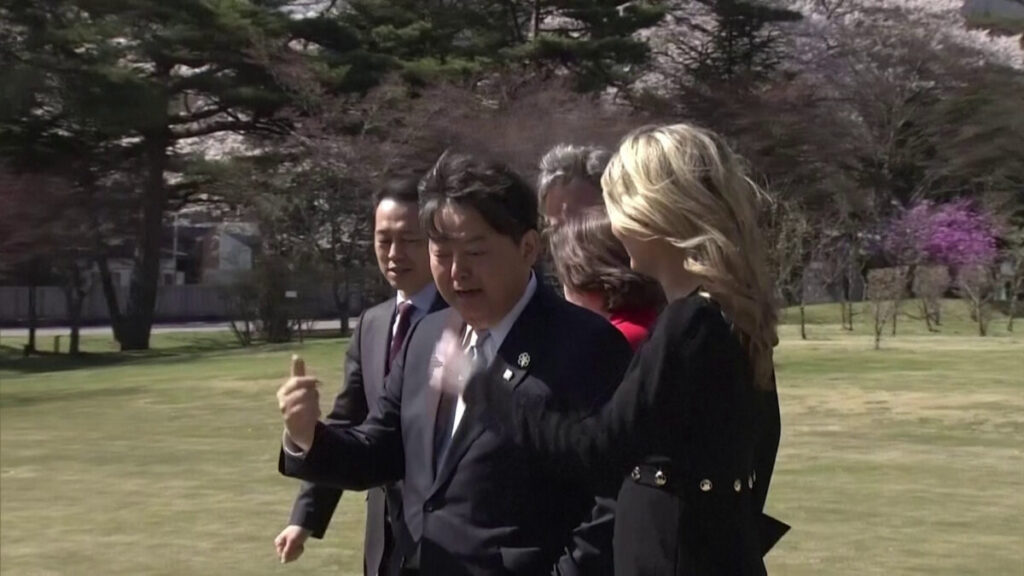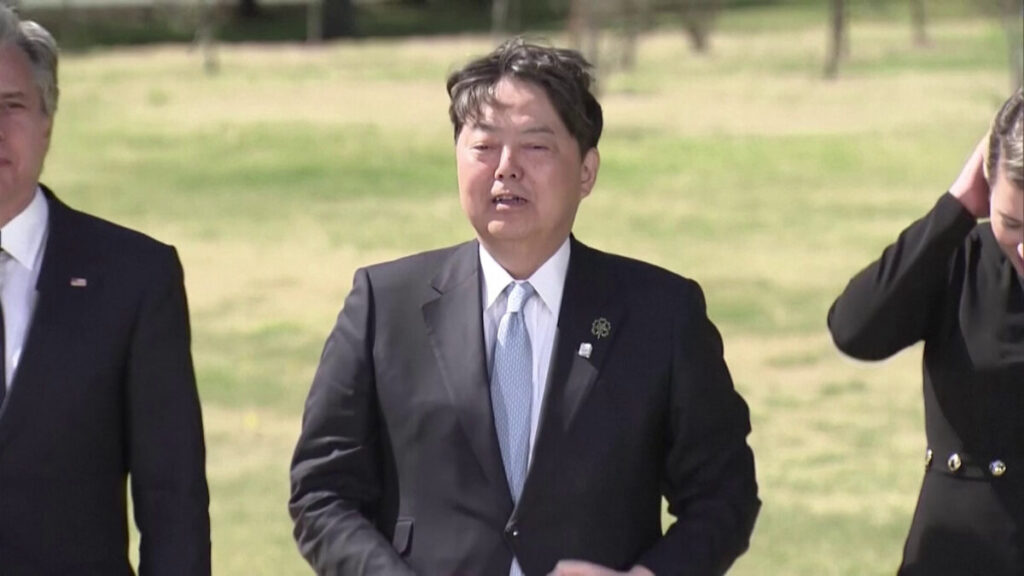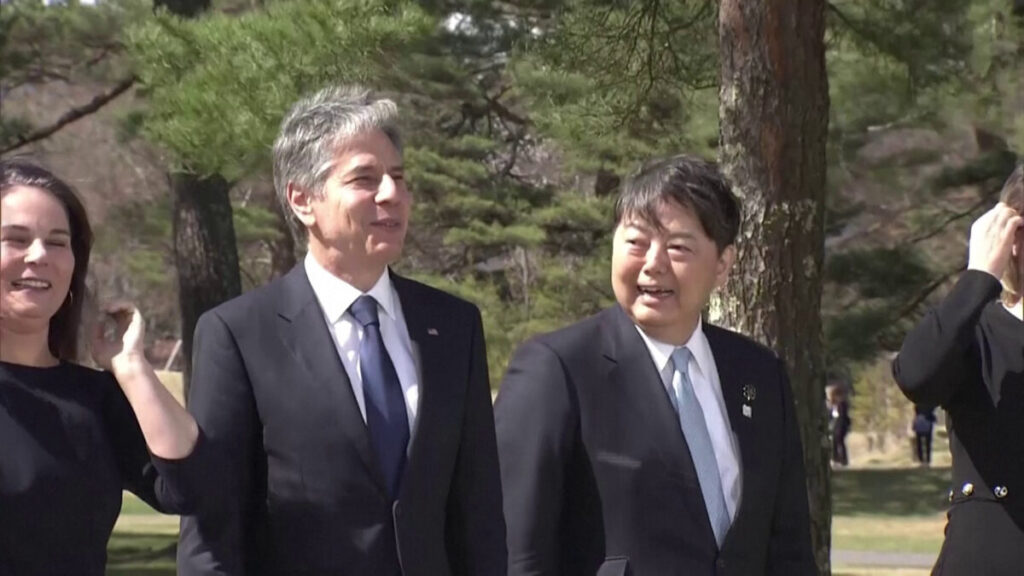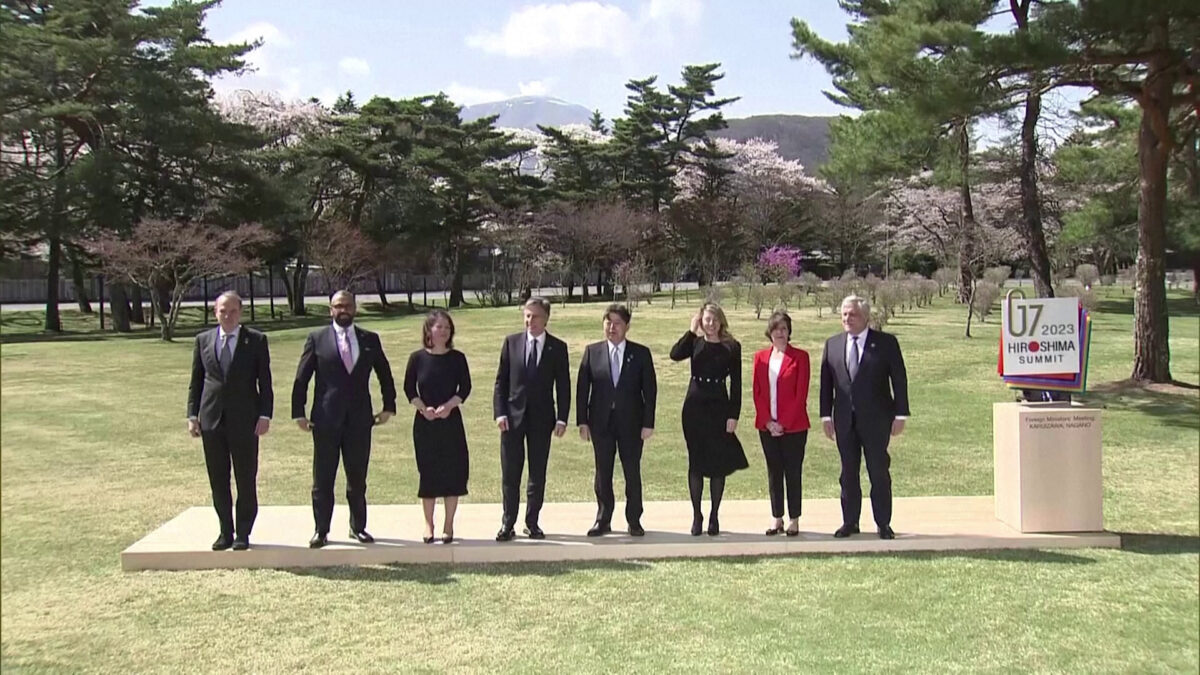Japan’s Foreign Minister Hayashi Yoshimasa on Monday hosted a 60-minute G7 session on “Afghanistan and Central Asia” where he expressed concern over the worsening human rights and humanitarian situation but also urged the international community to engage directly with the Taliban.
According to a statement issued by Japan’s Foreign Ministry, Hayashi also “strongly condemned the recent decisions by the Taliban that suppress human rights, including increased restrictions on women’s rights.”
Hayashi explained Japan’s analysis of the situation on the ground, as one of the few major donor countries with a presence in Kabul, and “emphasized the need to engage persistently and directly with the Taliban, while continuing to provide assistance to the people of Afghanistan in cooperation with the international community.”

Japan’s foreign ministry stated that the G7 Foreign Ministers collectively confirmed their strong opposition to the Taliban’s increasing restrictions on human rights and fundamental freedoms, especially condemning the violation of women’s and girls’ rights, and noted that the G7 should convey unified messages to the Taliban, prevent Afghanistan from becoming a safe haven for terrorism, and that the unimpeded access of aid workers is essential for effective delivery of assistance, among other matters.
The session on Afghanistan came on day two of the three day summit in the mountain resort of Karuizawa, Nagano Prefecture in Japan, which has brought together top diplomats from Group of Seven countries. The G7 groups Japan, Britain, Canada, France, Germany, Italy, the United States and the European Union.

This year’s summit meanwhile comes amid rising tension in Asia, especially China’s increasing assertiveness around Taiwan.
After earlier highlighting the need for a united front in the Indo-Pacific region and in intensifying and fully enforcing sanctions on Russia over its ongoing invasion of Ukraine, the attending diplomats agreed late Sunday to oppose unilateral attempts to change the status quo by force.
However, they reaffirmed the importance of “peace and stability” across the Taiwan Strait “as an indispensable element” of the security and prosperity of the international community, the Japanese Foreign Ministry said in a statement.
While the ministers agreed to call on China “to act as a responsible member of the international community,” Hayashi sought to balance this call with a more diplomatic approach, emphasizing the importance of “working together with Beijing” on global challenges and areas of common interest in an attempt to build “a constructive and stable relationship.”

On Monday, the ministers reiterated G7 nations’ commitment to supporting Ukraine in its war against Russia and demanded that Moscow withdraw all forces “immediately and unconditionally.”
They also slammed Russian leader Vladimir Putin’s “irresponsible nuclear rhetoric” and condemned his recent announcement that Moscow will deploy tactical nuclear weapons in Belarus.
Energy and food security, as well as strengthened engagement with countries known as the Global South — a loose grouping of some 100 nations, many developing and nonaligned with any major power, that includes India, Indonesia, Brazil and South Africa — was also discussed.





